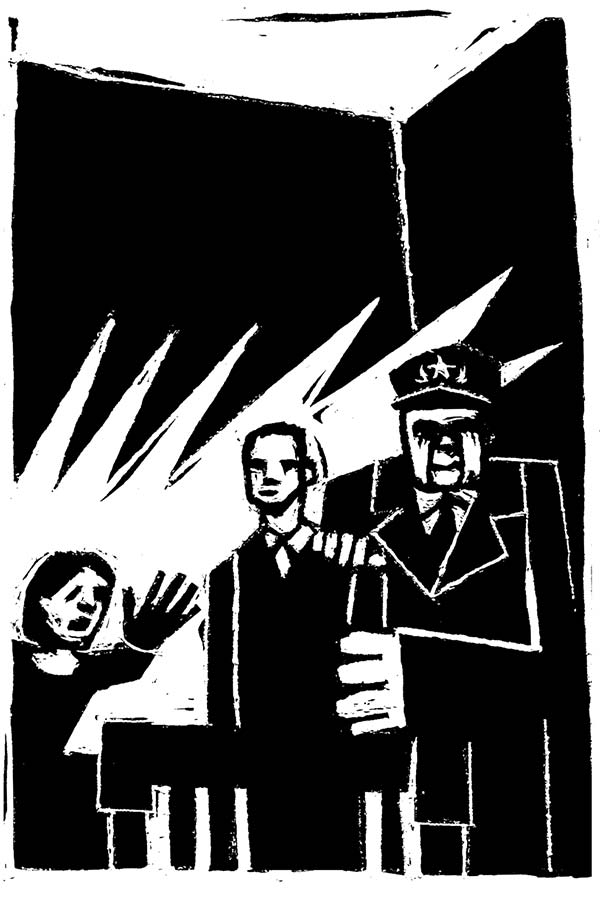He was subsequently accused of “economic crimes” and sentenced to four years in jail for “extortion.” “I think he touched a raw nerve,” Jiao Xia told Radio Free Asia during an interview in 2012.
That was an understatement.
Incarcerated in Tengzhou’s jail, Qi Chonghuai wrote an article about the mistreatment of prisoners in the underground mineshaft where he worked. Although the article was confiscated, it later found its way out of prison and circulated online.
Beaten, exhausted by forced labor, and ailing, he nevertheless vowed to continue his work upon his release. But city officials came to interrogate him, and instead of going free as he expected in June 2011, he was retried summarily on the same charges. His sentence was then extended by an additional eight years for a total of 12.
One of Qi Chonghuai’s lawyers, Wang Quanzhang, told Radio Free Asia in November 2012: “The earlier stage of this case was a public authority retaliating against a whistleblower. The later stage was individual local leaders getting revenge on Qi Chonghuai.”
As in the cases of other activists, lawyers, and journalists who fall under the wrath of corrupt officials or simply run afoul of the official Party line, wives are often left behind to fend for their families, to organize their husbands’ defenses, and to speak up. Some show themselves to be adept at this, but others are unprepared for the challenge.
Years after her husband’s arrest, Jiao Xia is still shaken. “They broke down the door and took him away,” she says, recalling his arrest. “I can’t bear to think of it. As soon as I think about it I get frightened.”
As her husband’s ordeal dragged on, with bruises and scars noticeable on his body at each one of her visits, Jiao Xia could barely make ends meet and worked two jobs to care for their teenage children, a boy and a girl.
She also struggled to find lawyers willing to represent her husband and continued to speak up about her husband’s case, taking calls from journalists from China and abroad. “My husband isn’t the only journalist to be jailed in China,” she told RFA in December 2012. “Everyone can see the dark side of China, and my husband’s detention... is proof of it.”
But she couldn’t seem to find a way out. “Everyone knows what you say when the media interviews you,” her husband told her during one of her visits. Authorities said: “Tell your wife to shut up. If she makes irresponsible remarks, it won’t be good for you.”
Unexpectedly, she did receive some financial support from acquaintances, some of them anonymous, until deposits on her bank account were blocked.
Jiao Xia and Qi Chonghuai had been married for 17 years, but Qi one day told his wife to divorce him. “I haven’t divorced you. How can you divorce me?” was her indignant reply. “What have I done wrong to make you want to divorce me?”
Finally, her brother-in-law convinced her that this was the only way her husband could still attempt to shield his family from the retaliations unleashed against him.
Qi Chonghuai and Jiao Xia officially divorced in 2013.
Jiao Xia had dizzy spells, and her eyesight became impaired. She also suffered for a time from insomnia and depression.
“I fought for him, for my husband's innocence. I didn't do enough, but I think there’s still time.”
In June 2008, Qi Chonghuai was honored in Washington D.C. by the National Press Club with its John Aubuchon Press Freedom Award for his efforts to reveal corruption.
And in December 2012, Qi was among the recipients of cash grants named for the American playwright Lillian Hellman and her longtime companion, the novelist Dashiell Hammett, that were awarded to writers who have been targets of political persecution or human rights abuses.
Jiao Xia was able to receive the cash award on his behalf.
Qi Chonghuai ‘s name last appeared in the news on April 28, 2014, when a U.S. State Department spokeswoman urged China to respect freedom of the press.
And Jiao Xia hasn’t given up. In an interview with RFA in 2012, she expressed a new determination: “I’m not afraid of difficulties anymore, and I’m no longer weak,” she said.
“I fought for him, for my husband’s innocence. I didn’t do enough, but I think there’s still time.”


 “It's Not OK: Women struggling for human rights” is a series of portraits of Asian women caught in the struggle for human rights in their communities. It was produced by Radio Free Asia. Download the
“It's Not OK: Women struggling for human rights” is a series of portraits of Asian women caught in the struggle for human rights in their communities. It was produced by Radio Free Asia. Download the